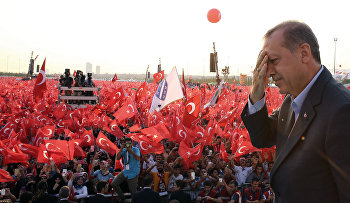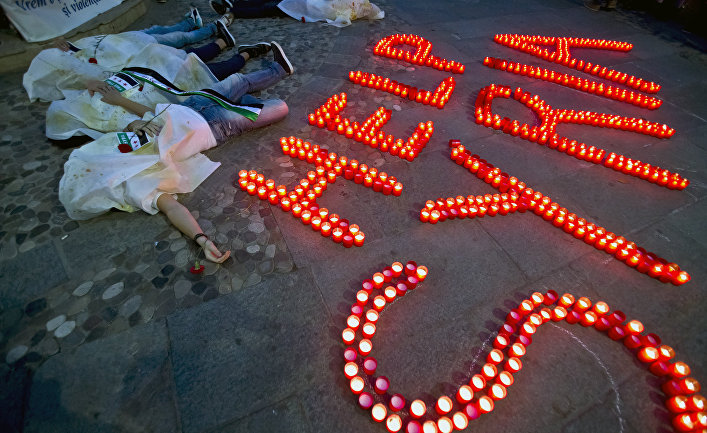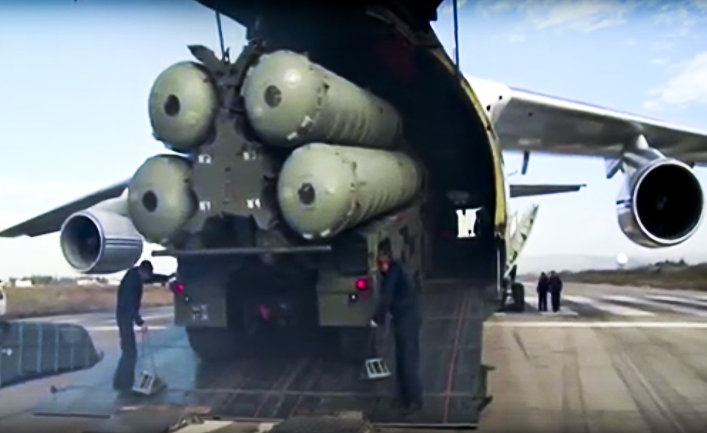The pillars of a coalition
Paris is trying to reach agreement with Moscow (which is already carrying out operations in Syria) and Washington – the only nations with the power to provide western leadership. The chief aim of President Hollande's diplomatic mission (which took him to Washington on last Tuesday, and onwards to Moscow on Thursday of the same week) is to form a “broad and united coalition” against the Islamic State. Yet given the divergent and opposing interests of the potential members of such a coalition, this will be fraught with difficulty – as became apparent on Tuesday, when Turkey shot down a Russian SU-24, sending shockwaves through relations between Russia and NATO's south-eastern pillar.
Nevertheless after the Friday-13 terror attacks, Paris found much readier ears. “Vladimir Putin floated the idea in the UN, but while it amounted only to Russia saving Assad, Russia was unable to generate momentum” said former French FM Hubert Vedrine. “But if President Hollande supports the idea, then it can move forwards. And of course, it brings France back into the game.” It will be far from simple to achieve unity between Washington, Moscow, and Paris – even if London lends its support.
The USA – an outgoing ally
The most recent meeting, which the French president held with his American counterpart on Tuesday, was a key moment. Following the Friday-13 attacks, Barack Obama immediately voiced his solidarity, and his Secretary of State, John Kerry, set off for Paris. But how does the situation really stand regarding moving on from the words, and provision of American intelligence — to actual finely-targeted strikes on ISIL? With the deployment of the French aircraft-carrier “Charles de Gaulle” to the Syrian coast, Paris now has 38 warplanes in the combat zone. France wants to see the USA taking tougher action against ISIL – both in terms of air strikes, and in cutting off ISIL's financial support. One issue is the mobilization of special forces in Syria.
France wants a global anti-Isis coalition, but only Russia looks willing https://t.co/xcBwJjhrSx
— The Guardian (@guardian) November 23, 2015
But in no case does the USA want to put boots on the ground, and makes no secret of this fact. However, public opinion in the USA – which has long remained steadfastly opposed to any new ground-based military operations – is continuously shifting, especially in the light of the Paris terror attacks. Polls conducted by ABC and The Washington Post suggest that up to 60% of the American public would now support full-scale military intervention. However, Obama is still uneasy about any coalition with Russia, against whom he has two years of bad blood over Ukraine, and which moreover supports the Syrian government. Obama has reiterated his claims that Assad must go. “Maybe I seem cynical in saying that my priority is ISIL, and not seeing Assad overthrown – despite the things he has done to his people. The USA is not going to prevent Assad's opponents from military action.”
This detached American position raises a vital question – the issue of leadership in any putative coalition. Garry Kasparov – the Russian chess champion and opposition leader – recently said that “you can't rally the forces of freedom from behind a curtain,” in response to Washington's tardy position in the international arena. Yet there remains no alternative feasible leader, since only the US possesses the necessary military fire-power. Until the Russian intervention, 95% of the attacks on ISIL in Syria and Iraq were undertaken by US forces.
Russia – the isolated ally
The military intervention which the Kremlin launched in Syria in late September brought Russia back to the front ranks of the international arena – as a reminder that Russia remains a vital partner. Nevertheless Vladimir Putin remains an isolated figure due to his defense of President Assad and the pillars of the Shiite camp, headed by Iran. The French operations enable Russia's gradual return to the focal point of the game.
But the idea of Russia taking an overall commanding role in the present climate is almost impossible – coordination of the incompatible aims and objectives would be unrealistic. “Russia's sorties need to be actually focussed on ISIL, and that's not happening right now” said one senior diplomat. Although Moscow may have upped its bombardment of ISIL targets after the downing of the Russian passenger airliner over Sinai, their principle targets have been rebel groups closer to the West. The whole issue of Russia's involvement is further complicated by Putin's continuous statements (such as the one he gave on Sunday after meeting Khameini in Tehran) concerning the “unacceptability of foreign attempts to dictate the scenario for a political resolution in Syria.”
Regional allies
Turkey, Saudi Arabia and Iran will “de facto” participate in military action against ISIL. But each for entirely different reasons.
Turkish journalists charged over claim that secret services armed Syrian rebels https://t.co/ww8nizJwU0
— The Guardian (@guardian) November 27, 2015
The aims of the three leading nations in the region of the Syrian conflict are utterly different to those of Paris or Washington. This applies to Turkey and Saudi Arabia, if they enter the anti-ISIL coalition, just as much as those who are diametrically opposed to it (Iran supports Damascus, alongside Russia).
Turkey – the uncomfortable ally
Turkey forms the south-eastern pillar of the NATO alliance – with the alliance's second-largest army after the US. Turkey borders Syria for 900 kilometers, and ought to be the West's key ally in any war against ISIL. Despite this, Ankara's active involvement in the coalition began only in July – when it offered its Incirlik Air Base as facility to launch sorties against ISIL. In 2011 Turkey's Islamist-Conservative leader Recep Tayyip Erdogan (who has been in power since 2002) supported the Syrian insurgency against President Assad by the Syrian Free Army and Islamist groups.
#Turkey increases military support to terrorist groups – #Assad https://t.co/GfgfddH2dl #SyriaCrisis
— Sputnik (@SputnikInt) November 30, 2015
Moreover he continues to maintain that the links between the PKK – Kurdish rebels at war with the Turkish government — and Syrian Kurds represent a threat at least as great as ISIL. “This position drives Turkey further and further from its allies” writes the Director of the Marshall Foundation in Ankara, Ozgür Unlühisarchikli. “Erdogan toughened his stance after the November 1 elections, and now he's reached the moment of truth. He has to change course to have any hope of playing a role in the Syrian.”
Countries of the Persian Gulf – ambiguous allies
Saudi Arabia has two priorities – its situation with Yemen, and its struggle with Iran. Particularly after the signing of Iran's nuclear agreement, which ends Iran's isolation and improves its financial position, Riyadh fears that these funds will now be put to even further destabilization of the region. The fight with ISIL is in third place, or perhaps even fourth — as soon as Bashar al-Assad is overthrown, which the Saudi leaders connive at by providing weapons and finance to the rebels, both to the pro-Western opposition, and to the Islamists alike. Even so, the Saudis remain aware of the danger posed by ISIL – which aims to reach Riyadh, and the holy places. The Islamist group has already organized a number of operations on Arabian territory.
Saudi Arabia — tops list, U.S. – fourth among countries with most #ISIS supporters on Twitter. #ISIL #Daesh pic.twitter.com/5Cags2EKZA
— IN THE NOW (@INTHENOWRT) November 30, 2015
By proclaiming a caliphate in Mosul in June 2014, Abu Bakr al-Baghdadi posed a direct challenge to the House of Saud in the religious sphere. No matter that they are brothers in Sunni Islam with the Sauds, the Caliph aims at the overthrow of the “crusaders”, “Jews”, and “usurpers.” Understanding the risks on its southern borders, Riyadh joined the international coalition, and undertook strikes on ISIL. However, the ideological proximity of the Islamist regime makes it a simple matter for thousands of young Arabians to defect to its ranks. Mistrust from the American administration after September 11 only heightens this problem. One example is Joe Biden's speech given at Harvard University in October 2014, in which he accused the Saudi Arabians of having delivered “hundreds of millions of dollars, and millions of tons of weapons” to the al-Nusra Front (the Syrian manifestation of Al-Qaeda) and to Al-Qaeda itself. Biden later apologized for what he had claimed.
Iran – an indirect ally
Iran's involvement in the struggle, on Assad's side, is constantly gaining pace – beginning from loans, and moving on to a stepped-up military presence. Iran, though, is not just fighting ISIL, but the whole panoply of rebel groupings. In fact Iran's strategy is very little different from Russia's, with the exception of Tehran's priority in stabilizing Iraq. The Moscow-Tehran axis – which came into being in the 1990s in the Caucasus, Afghanistan and Central Asia – has two steadfast enemies. The first is Sunni radical Islam, represented today by the Taliban and ISIL. The second is the neo-conservative tendency in the West, which colludes at the democratization of the former USSR and the Middle East. For Tehran, Syria is a both a foreign (as far as supplying arms to Hezbollah) and a domestic issue – Assad's ouster would weaken the position of the Guardians of the Revolution, who are responsible for the Syrian conflict.

The Syrian forces
In the long term, ground-based intervention will be unavoidable when taking into account the armed groups with utterly contradictory objectives.
Who amongst them can unite with France's coalition motives? These are difficult questions when we take into account the differing interests and alliances. To take one view, Russia and Iran support the Assad regime and the Hezbollah Lebanese Shiites. Yet in an opposing view, the West, Turkey and the Gulf States are putting their bets on the Sunni rebels, and demand the ouster of Assad.
The Kurds – reliable allies
Alliance with the Kurds is the only kind which everyone supports – except Turkey. The West is already partnering with the “Democratic Union” and is supplying them with weapons. In Autumn of 2014 the USAF made huge hits on ISIL forces – who then launched attacks on the Kurdish city of Kobane, situated on the Turkish border. France has also provided Kurdish fighters with weapons – without which they would inevitably suffered defeat. In the final analysis ISIL suffered their heaviest losses at Kobane – with casualties ranging from 1000 to 2000 men, according to varying sources. The Kurds furthermore refer to themselves as Russian allies. In their operations against ISIL they have had official air support from Russian aircraft since September. Several days after these strikes, “Democratic Union” Kurdish leaders were received in Moscow.
A calm assessment of the realities iin war against ISIS eg: Our ally Turkey, killing Kurds who kill ISIS Fighters https://t.co/NQIM4JAROR
— Jon Snow (@jonsnowC4) December 1, 2015
And finally, the Kurds have a non-aggression pact with President Assad's forces. The Syrian government military still keep a presence in the main Syrian Kurdish city of Qamishli. They control the city's airport, outside which stands a statue of Hafez al-Assad. Furthermore, the Syrian forces continue to hold parts of Hasakah, in the north-east.
Yet in parallel with this, the relationship of the Kurds with Turkey remains extremely unstable. “Democratic Union” is the Syrian branch of the PKK, which has been involved in an long-running guerrilla war with Turkey for over three decades. Turkey is categorically opposed to the formation of any autonomous Kurdish regions in Syria. In October, Turkey dealt a vicious blow to Kurdish positions after they crossed the Euphrates and began moving towards Jarabulus.

It's also doubtful if the coalition will be able to incite the Kurds towards an attack on Raqqa, ISIL's Syrian stronghold. “Kurds say they are ready to storm the city, but in reality they do everything possible to avoid this” said one Syrian expert. “There is no point expecting their attack on Raqqa any time soon”. It's the role of Raqqa itself which is the sticking-point here. Kurds do not see this Arab-majority city as being of importance to their cause.
The Syrian rebels – masked allies
During the October talks in Vienna, the Jordanians commissioned an analysis of the seemingly endless hosts of armed groupings in Syria – and to categorize them as to who might be potential allies, and who are the terrorists. The list is due to be submitted to the UN General Council. The category of terrorists, undoubtedly, will be populated by ISIL and the al-Nusra Front (the Syrian representatives of Al-Qaeda). However, the other groupings are going to be much harder to categorize. One example is the Ahrar ash-Sham – one of the largest rebel groupings. It's a Salafist grouping which encompasses many former Al-Qaeda members. Yet at the same time it conforms to primarily nationalist standpoints, and focuses on both the fight against Assad, and against ISIL. It was troops from Ahrar ash-Sham who led a coalition against ISIL rebels in northern Syria in late 2013. Ahrar ash-Sham has support from both Turkey and Qatar, but the USA prefers to keep them at a distance. “The Americans don't trust them because of the numbers of former Al-Qaedist fighters – but for all that, they don't prevent Turkey from providing support to the movement,” said one specialist on Syrian affairs.
David Cameron is deeply misguided if he thinks the Syrian Rebels are one homogenous group. Utterly idiotic (see pic) pic.twitter.com/BGFLxWaa0Y
— Éoin (@LabourEoin) November 26, 2015
Jordan will have to make its choices from among groups who previously belonged to the Free Syrian Army – who were the first opposition to Assad. The profiles of many of these groups are constantly shifting, since soldiers are continuously moving from one group to another. However, some see them as the allies of the American CIA, which has provided them with TOW anti-tank missiles. The coalition would have to persuade Russia to cease firing on them.
Syrian troops and Shiite ranks – opposing allies
Although the destruction of ISIL remains the top priority of the coalition, nearly all of its members remain convinced that Bashar al-Assad “cannot be part of the solution,” as France has commented. Even Russia seems to have softened its stance on Assad, by giving its agreement to a transfer of power within 1.5 years. The Syrian Army has barely fought with ISIL at all for the past two years. During 2014 the Syrian Army directed only 6% of its attacks on ISIL. And even if the Syrian regime changes tack, its army (shattered by five years of wars and desertions) and the (no less exhausted) Shiite groupings would not be capable of mounting attacks on ISIL strongholds. Quite the reverse, this would only bolster the position of Abu Bakr al-Baghdadi, who would be able to recruit fresh supporters from among the Sunni population. And most of all, the army would have to first defeat the ranks of rebels who continue to cling to their positions in the face of the Russian bombardments.







